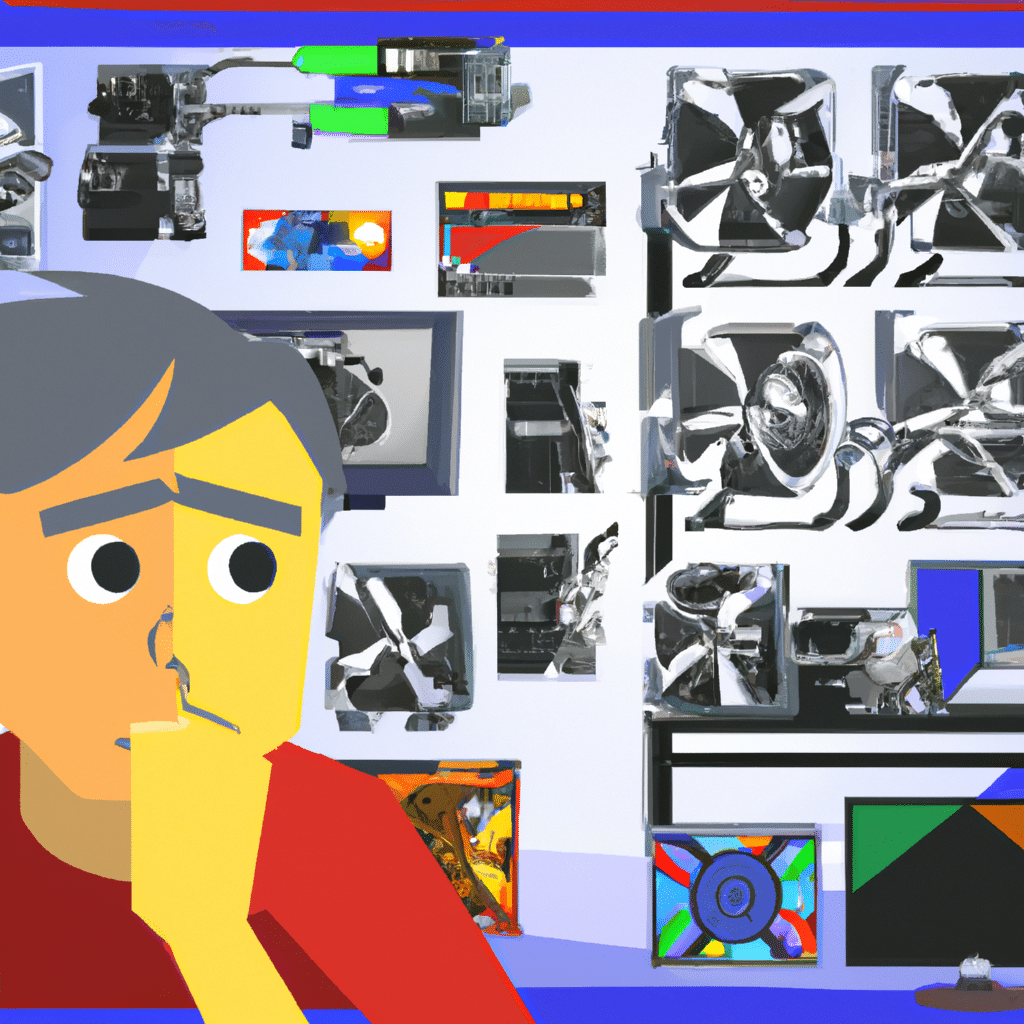Are you a gamer looking to upgrade your graphics card? With so many options out there, it can be overwhelming to choose the right one. In this article, we’ll guide you through the process of selecting the best graphics card to suit your gaming needs.

Understanding Graphics Card Basics
Before we dive into the specifics of choosing a graphics card, let’s start with some basic information.
What is a Graphics Card?
A graphics card, also known as a video card, GPU, or graphics processing unit, is a hardware component that is responsible for rendering images on a computer screen. It is a vital component in any gaming setup, as it determines the quality of graphics and frame rate of your games.
Graphics Card Components
A graphics card is composed of several components, including the GPU, VRAM, and cooling system. The GPU is the most important component, as it performs the actual processing of images. VRAM, or video RAM, is the memory that stores the graphics data that the GPU needs to render images. The cooling system is necessary to prevent the GPU from overheating and causing damage to the card.
Compatibility
When choosing a graphics card, it’s essential to make sure it is compatible with your computer’s motherboard and power supply. Be sure to check the specifications of your computer before purchasing a new graphics card.
Factors to Consider When Choosing a Graphics Card
Now that we have an understanding of the basics let’s dive into the factors to consider when selecting a graphics card.
Budget
One of the most important factors to consider when choosing a graphics card is your budget. Graphics cards come in a wide range of prices, and it’s essential to choose one that fits your budget. It’s also important to note that a higher price doesn’t always mean better performance.
Performance
The performance of a graphics card is determined by several factors, including clock speed, memory bandwidth, and the number of CUDA cores. The clock speed refers to the speed at which the GPU performs calculations. Memory bandwidth is the rate at which data can be transferred between the GPU and VRAM. CUDA cores are parallel processors that perform calculations on the GPU.
Resolution and Refresh Rate
When selecting a graphics card, it’s essential to consider the resolution and refresh rate of your monitor. A higher resolution and refresh rate require a more powerful graphics card to achieve optimal performance.
Games and Applications
Different games and applications have different graphics requirements. It’s important to consider the games and applications you’ll be using to ensure that the graphics card you choose can handle their specific requirements.
Brand
There are many brands of graphics cards on the market, including AMD and NVIDIA. Both brands offer high-quality graphics cards, and the choice between them ultimately comes down to personal preference and budget.
Conclusion
Choosing the right graphics card for your gaming needs can be a daunting task, but by considering factors such as budget, performance, resolution, refresh rate, games and applications, and brand, you can find the perfect graphics card to take your gaming experience to the next level. Remember to ensure compatibility with your computer before making a purchase and to do your research to find the best graphics card for your specific needs.












